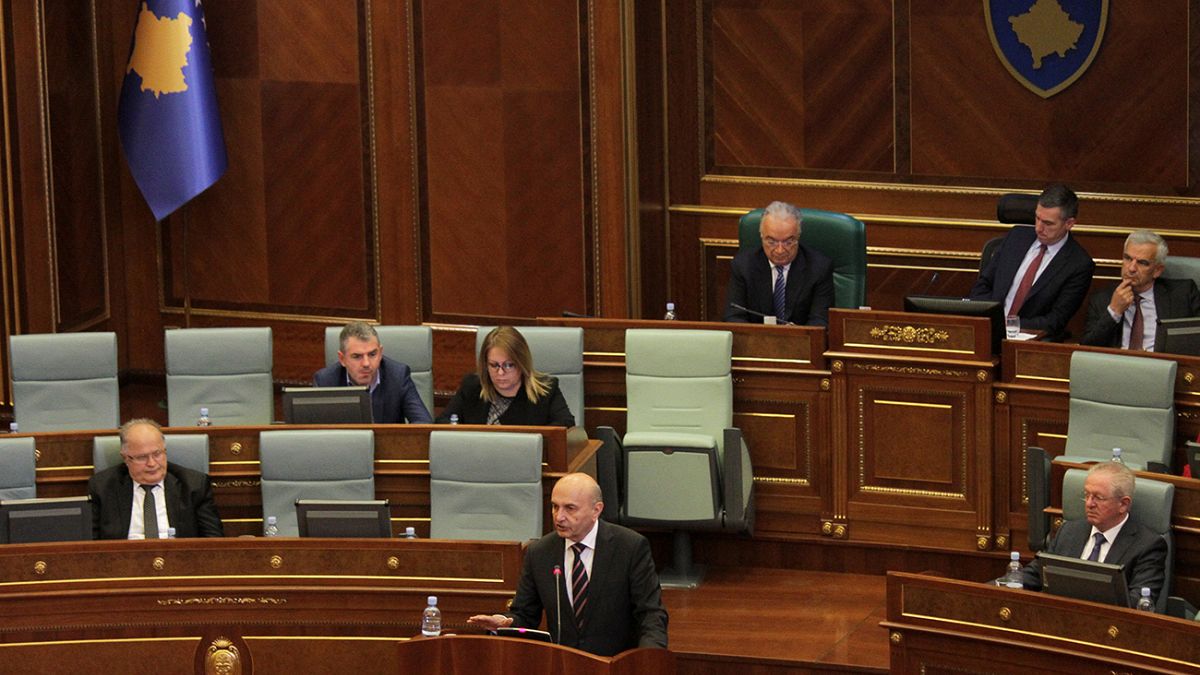After months of political deadlock, lawmakers vote to dismiss Isa Mustafa's cabinet, triggering a snap election next month.
Kosovo’s government lost a no-confidence vote on Wednesday, setting the scene for a snap parliamentary election next month.
Seventy-eight MPs in the 120-seat parliament voted to dismiss Prime Minister Isa Mustafa’s cabinet, which the opposition had accused of failing to meet its campaign pledges and creating public distrust.
It comes after months of political deadlock over a border demarcation deal that critics say would cause the tiny Balkan country to lose territory to neighbouring Montenegro.
#UPDATE Kosovo's government collapsed after it lost a confidence vote in parliament https://t.co/TCwd4GN5K6
— AFP news agency (@AFP) May 10, 2017
Following the vote, President Hashim Thaci dissolved parliament. According to the constitution, the election must be held within 45 days. Thaci is expected to set a date in the coming days.
On the streets of Pristina, the scene was all too familiar.
“The government has fallen but we don’t have other alternatives,” said
one local resident. “We have two parties to choose from – LDK (Kosovo Democratic League) and PDK (Kosovo Democratic Party) – but it will all be the same… We’re going to vote again, and it’s becoming a spectacle.”
The snap election will further postpone the adoption of a demarcation deal with Montenegro, key for the European Union to lift its requirement of needing a visa to travel to Kosovo.
It will also temporarily stall EU-sponsored talks between Kosovo and Serbia, which are crucial for both countries to make progress towards joining the EU.
Kosovo broke with Serbia in 1999 after a NATO bombing campaign halted a campaign of “ethnic cleansing” directed against ethnic Albanians by Serbian forces trying to stamp out a two-year insurgency and declared independence in 2008.
On Twitter, EU Commissioner for Enlargement Johannes Hahn said he “regretted” the no-confidence vote, and called on Kosovo’s political leaders not to lose sight of the “great challenges” it faces.
Regret today's no-confidence vote of the #Kosovo Assembly. Pol leaders, institutions mustn't lose sight of great challenges Kosovo faces 1/2
— Johannes Hahn (@JHahnEU) May 10, 2017
#Kosovo: key work on #ruleOfLaw, #economy, #Dialogue and #visa liberalization must continue, for the benefit of the citizens.
eu_near</a></p>— Johannes Hahn (JHahnEU) May 10, 2017
